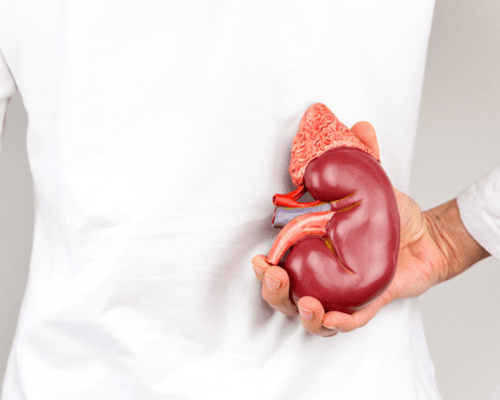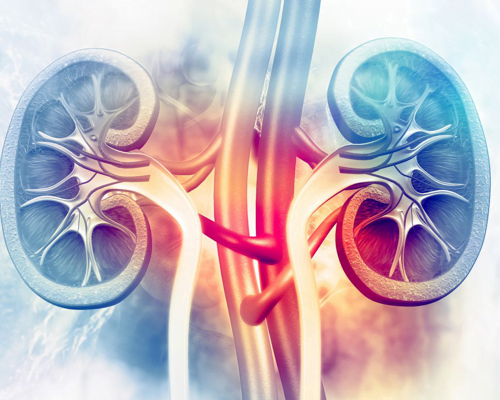
About Nephrology
Nephrology is a medical specialty that focuses on the treatment of kidney conditions and abnormalities. A physician who practices nephrology is called a nephrologist. It is a subspecialty of internal medicine. Therefore, a nephrologist would complete the same training as an internist and then complete an additional fellowship in nephrology.
Nephrologists diagnose causes and levels of kidney failure and prescribe appropriate treatment such as medication, diet changes, or dialysis. If none of these treatments work, a kidney transplant would be performed by a transplant surgeon.
What Kind Of Conditions and Patients Do Nephrologists Treat?
The kidney is affected by many chronic and systematic diseases as well as an acute injury, infections, and kidney stones. There is a growing need for renal medicine due to the prevalence of diseases such as diabetes and hypertension. As the Baby Boom generation enters their later years, there will be further needed for nephrology.
Patients would be referred to a nephrologist if there are any signs of kidney disease, including blood or protein in the urine, disturbances of electrolyte and acid/base balance, kidney stones, acute kidney failure, and chronic kidney disease. A nephrologist might perform a kidney biopsy.
Nephrologists often care for patients for a long period of time, managing their kidney problems through end-stage renal failure. The nephrologist must coordinate care with primary care physicians, surgeons, and other health professionals. Patients may be referred for dialysis or a kidney transplant.
When Should You See A Nephrologist?
If your kidneys are in the early stages of a disease, a general care doctor may be able to help to prevent and treat them. However, in many cases, kidney diseases occur without any or non-specific symptoms that are hard to detect. Some of them include fatigue, changes in the urine amount, and sleep troubles.
Therefore, people who are at a higher risk for kidney diseases must go through regular tests to monitor their kidney health and functioning. Individuals with diabetes, heart disease, high blood pressure, and a family history of kidney problems should be cautious.
Regular tests will help you detect any signs of declining kidney function like an increase in albumin level in urine or a decrease in GFR value. If the tests show that your kidney functions are rapidly or continually deteriorating, it’s time to see a nephrologist.
Some Of The Common Reasons Why Your Doctor May Refer You To A Nephrologist Are Mentioned Below:
- Sudden loss of kidney functions or acute renal failure
- CKD (chronic kidney disease) with a long-term decline in kidney functions
- Cystitis or bladder infections and Pyelonephritis or kidney infection
- Recurring kidney stone formation
- Presence of blood, crystals, proteins or casts in the urine
- Acid-base imbalance or electrolyte disorders
- Diabetic nephropathy
- Hypertensive nephrosclerosis (kidney damage from high blood pressure)
- Atheroembolic kidney disease (kidney damage from atherosclerosis)
- Autoimmune diseases such as lupus, autoimmune vasculitis, etc.
- Drugs or toxins that may have caused kidney damage

Difference Between Urology and Nephrology?
Nephrologists are medical doctors who do not perform surgeries and specialize in the diagnosis and treatment of diseases of the kidney and urinary system, such as inflammation of the kidneys, chronic kidney disease, effects of high blood pressure and diabetes on the kidneys, side effects of medications on the kidneys and also complications of many other diseases on the way the kidneys function to filter the blood and keep it clean.
Nephrologists manage electrolyte disorders such as low or high sodium, potassium, calcium. Nephrologists also manage but do not do surgery on patients who develop kidney stones and diagnose and prescribe medications to prevent them to come back again. Nephrologists also follow up patients with end-stage kidney disease who already are on dialysis and prepare them to become candidates for a kidney transplant, they also follow up patients already transplanted after the surgery.
Urologists are medical doctors who specialize in the diagnosis and treatment of diseases of the kidneys and urinary system in men and women and disorders of the male reproductive system. Urologists perform surgery and treat urination problems, such as difficulty in holding urine (incontinence), tumors, cysts, growths or stones of the urinary system, they also treat problems of the male reproductive system such as impotence (erectile dysfunction).
FAQs
- What causes kidney failure?
Diabetes is the most common cause of kidney failure. When blood-sugar levels are too high, as they are when diabetes is poorly controlled, it can damage the kidneys. High blood pressure (hypertension) is the second-leading cause of failure. Researchers believe that high blood pressure damages the fragile arteries around the kidneys, disrupting blood flow and leading to failure.
- What are the symptoms of kidney failure?
Mild to moderate kidney failure rarely has symptoms. It is most often detected on a routine laboratory test. Severe kidney failure can cause fatigue or poor sleep, loss of appetite, vomiting episodes, swelling, difficulty breathing, and weakness. One of the challenges with recognizing kidney disorders is that symptoms typically appear in other parts of the body. While these symptoms may also be caused by other illnesses, individuals with these issues should seek medical attention promptly.
- How is kidney function measured?
The most important measure of kidney function is the amount of creatinine in the blood. Creatinine is a waste product produced by muscle tissue. Damaged kidneys have trouble removing it from the blood.
- What can I do to maintain the health of my kidneys?
Diabetes and high blood pressure account for two-thirds of all cases of chronic kidney disease. Eating a heart-healthy diet, exercising regularly, and maintaining a healthy weight can help you avoid developing these diseases. Those who have been diagnosed with diabetes and high blood pressure can control their disease and prevent complications by eating well, staying active, and taking medications as directed. It’s also important for those who have been diagnosed to check with their nephrology clinician before taking over-the-counter medications.
As with most conditions, early detection and intervention are critical. If kidney disease is identified and treated early, you and your health care team can work together to slow its progression and prevent complications.

